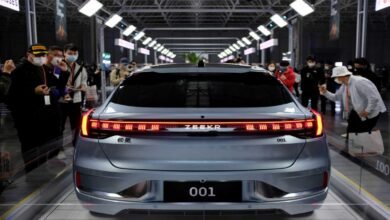FTC Voids California’s Climate Deal with Truck Makers, Citing Federal Authority

WASHINGTON — The Federal Trade Commission (FTC) on Tuesday announced it has invalidated a voluntary emissions agreement between the state of California and four major truck manufacturers, declaring the pact “unenforceable.” The move asserts federal authority over state-level regulations and unravels a key part of California’s strategy to safeguard its ambitious climate policies.
The agreement, known as the Clean Truck Partnership, was signed in 2023. In it, several heavy-duty truck manufacturers had committed to meeting California’s stringent zero-emission vehicle (ZEV) sales targets, regardless of any future challenges to the state’s regulatory authority under the Clean Air Act. The deal was widely seen as an attempt by California to “Trump-proof” its climate rules.
In a statement, the FTC said its intervention would prevent what it termed a “troubling regulatory gambit” by the California Air Resources Board (CARB).
“The Commission’s swift action will put the Clean Truck Partnership squarely in the rearview mirror,” said Taylor Hoogendoorn, Deputy Director of the FTC’s Bureau of Competition.
Manufacturers Claim “Impossible Position”
The FTC’s announcement came just one day after four of the manufacturers involved—Daimler, Volvo, International Motors, and PACCAR—filed a lawsuit against California. In the suit, the companies argued they were caught in an “impossible position” between conflicting state and federal authorities.
“The OEMs are subject to two sovereigns whose regulatory requirements are irreconcilable and who are openly hostile to one another,” the lawsuit states, adding that the situation prevents them from planning with necessary certainty.
This legal action was prompted by a cease-and-desist letter sent to CARB by the U.S. Justice Department, escalating the conflict between the state and the Trump administration, which has consistently sought to roll back California’s special authority to set its own vehicle emission standards.
Environmental Groups Criticize Reversal
Environmental advocates and former state officials criticized the manufacturers for backing out of the agreement, arguing it was designed for precisely this type of political scenario.
“The Clean Truck Partnership was designed exactly for a moment like this,” said Adam Zuckerman, a senior campaigner with Public Citizen’s Climate Program.
A former CARB official who helped negotiate the 2023 deal called the development “bad” for the state’s pollution-reduction efforts. “They’re still going to sell some electric trucks, but it’s somewhere between bupkis and inadequate,” said former CARB deputy executive officer Craig Segall.
California Explores New Strategies
While this move weakens one of California’s key regulatory tools, the state is already working on alternative plans. Governor Gavin Newsom recently signed an executive order directing state agencies to develop new regulations and strategies to bolster the EV market. These could include offering financial incentives and preferential treatment to companies that continue to pursue electrification goals.
“It’s not like there’s any statute making California buy from these [companies], or any statute requiring it to provide particular incentives to them,” Segall noted, suggesting the state still has significant leverage.
It remains unclear how other signatories to the original deal, including Ford, General Motors, and Stellantis, will proceed. However, in the light-duty vehicle sector, Stellantis recently reaffirmed its separate commitment to follow California’s EV sales rules, signaling that some industry partnerships with the state may endure.











